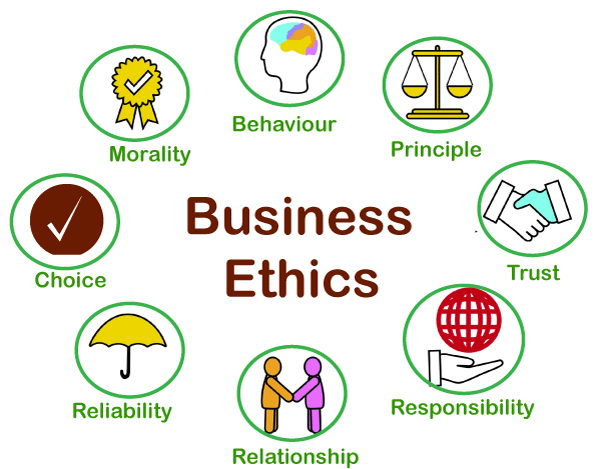
Ethical Business Practices: Building Trust and Integrity for Sustainable Success
In today’s fast-paced and interconnected world, the way businesses operate goes far beyond just making a profit. Customers, employees, investors, and the general public are increasingly scrutinizing companies for their ethical business practices. What does this mean? It means operating with honesty, transparency, and a strong sense of integrity in every decision and action.
This comprehensive guide will break down what ethical business practices are, why they are crucial, and how any business, big or small, can build a foundation of trust and integrity for long-term success.
What Are Ethical Business Practices?
At its core, ethical business practice refers to conducting business in a way that aligns with moral principles and values. It’s about doing the right thing, even when no one is watching, and even when it might be the more challenging path.
Think of it as having a strong moral compass guiding all your business decisions, from how you treat your employees and customers to how you source your materials and impact the environment.
Key characteristics often include:
- Honesty and Truthfulness: Being truthful in all communications and transactions.
- Fairness: Treating all stakeholders—employees, customers, suppliers, competitors—equitably.
- Respect: Valuing the dignity and rights of individuals.
- Transparency: Being open and clear about business operations, especially where it impacts others.
- Accountability: Taking responsibility for actions and decisions, both good and bad.
Why Ethical Business Matters More Than Ever
Some might view ethical practices as a "nice-to-have" or an added expense. However, the reality is that they are fundamental to building a resilient and successful business in the modern era. Here’s why:
1. Building Unshakeable Trust and Reputation
Trust is the currency of business. When customers trust your brand, they are more likely to buy from you, recommend you, and remain loyal. When employees trust their leaders, they are more engaged and productive.
- For Customers: Ethical behavior (like honest advertising, fair pricing, and quality products) builds confidence.
- For Partners & Investors: A strong ethical reputation attracts reliable partners and investors who seek stable, low-risk ventures.
- For the Public: A positive public image can protect your brand during challenging times and make it more appealing to a wider audience.
In essence, a good reputation is priceless and incredibly difficult to rebuild once lost.
2. Boosting Customer Loyalty and Sales
People today want to support companies that reflect their values. They are willing to pay more for products from ethical brands and will actively seek them out.
- Values-Driven Purchases: Consumers increasingly base purchasing decisions on a company’s stance on social and environmental issues.
- Positive Word-of-Mouth: Satisfied and ethically aligned customers become powerful brand advocates, spreading positive recommendations.
- Reduced Customer Churn: Loyal customers are less likely to switch to competitors, even if they offer slightly lower prices.
3. Attracting and Retaining Top Talent
Employees, especially younger generations, are looking for more than just a paycheck. They want to work for organizations that have a purpose and operate ethically.
- Stronger Company Culture: Ethical practices foster a positive, respectful, and inclusive workplace environment.
- Increased Employee Engagement: Employees who believe in their company’s mission and ethics are more motivated, productive, and less likely to leave.
- Lower Recruitment Costs: A reputation as an ethical employer attracts talent naturally, reducing the need for extensive recruitment efforts.
4. Mitigating Risks and Avoiding Legal Troubles
Unethical behavior can lead to severe consequences, including hefty fines, lawsuits, criminal charges, and devastating reputational damage.
- Compliance with Laws: Ethical businesses are inherently more likely to comply with laws and regulations, reducing legal risks.
- Reduced Fraud and Corruption: Strong ethical frameworks discourage internal misconduct.
- Crisis Management: Companies with a history of ethical conduct are better positioned to navigate public relations crises, as they have built up a reservoir of goodwill.
5. Fostering Long-Term Sustainability and Growth
Ethical practices are not just about avoiding negatives; they are about creating positive, lasting value. Businesses built on integrity are more resilient and adaptable.
- Innovation: An ethical culture encourages open dialogue and diverse perspectives, fostering innovation.
- Access to Capital: Many investors, particularly those focused on ESG (Environmental, Social, Governance) criteria, prioritize ethical companies.
- Market Leadership: Ethical pioneers can set industry standards and gain a competitive edge.
Core Principles of Ethical Business Practices
So, what does an ethical business actually do? Here are some fundamental principles:
- Integrity and Honesty:
- Always tell the truth in advertising and marketing.
- Be transparent about product ingredients, services, and pricing.
- Avoid misleading customers or stakeholders.
- Respect for All Stakeholders:
- Employees: Fair wages, safe working conditions, equal opportunities, respect for privacy, work-life balance.
- Customers: Quality products/services, responsive customer service, protecting data privacy, honest communication.
- Suppliers: Fair contracts, timely payments, ethical sourcing (e.g., no child labor, fair trade).
- Community: Minimize negative environmental impact, contribute positively to local society, engage in corporate social responsibility (CSR) initiatives.
- Transparency:
- Be open about business practices, especially regarding financial reporting, data collection, and environmental impact.
- Communicate clearly and openly with all stakeholders.
- Accountability:
- Take responsibility for mistakes and rectify them promptly.
- Hold individuals and the organization accountable for ethical standards.
- Fairness:
- Ensure non-discriminatory practices in hiring, promotions, and customer service.
- Resolve disputes impartially and justly.
- Avoid conflicts of interest.
- Environmental Stewardship:
- Minimize waste and pollution.
- Conserve resources and promote sustainable practices.
- Consider the environmental impact of products and operations.
How to Implement Ethical Practices in Your Business
Building an ethical business culture isn’t a one-time task; it’s an ongoing journey. Here are practical steps you can take:
1. Lead by Example: Ethics Starts at the Top
Ethical behavior must be modeled by leadership. If leaders cut corners or act unethically, employees will follow suit.
- Demonstrate Integrity: Leaders must consistently show honesty, fairness, and transparency in their own actions.
- Communicate Values: Clearly articulate the company’s ethical vision and values.
2. Develop a Clear Code of Conduct and Ethics Policy
A Code of Conduct is a written document that outlines the expected ethical behavior for all employees and stakeholders. It serves as a guide for decision-making.
- Define Core Values: Clearly state the principles that guide your business.
- Address Key Areas: Cover topics like conflicts of interest, anti-discrimination, harassment, data privacy, use of company assets, and environmental responsibility.
- Make it Accessible: Ensure everyone has access to and understands the code.
3. Provide Regular Ethics Training and Education
Simply having a code isn’t enough. Employees need to understand how to apply it in real-world situations.
- Onboarding Training: Introduce the code of conduct to new hires.
- Ongoing Workshops: Conduct regular training sessions to reinforce ethical principles and discuss common dilemmas.
- Scenario-Based Learning: Use real-life examples to help employees practice ethical decision-making.
4. Establish Clear Reporting Mechanisms (Whistleblower Protection)
Employees need a safe and confidential way to report unethical behavior without fear of retaliation.
- Anonymous Hotlines or Channels: Provide avenues for confidential reporting.
- Non-Retaliation Policy: Explicitly state that employees who report concerns in good faith will be protected from negative consequences.
- Prompt Investigation: Commit to thoroughly investigating all reported issues.
5. Foster an Open and Accountable Culture
Encourage open communication where employees feel comfortable raising concerns and discussing ethical dilemmas.
- Regular Feedback: Create opportunities for employees to provide feedback on ethical issues.
- Performance Reviews: Include ethical conduct as a criterion in performance evaluations.
- Consequences for Misconduct: Consistently apply disciplinary actions for ethical breaches, demonstrating that the policy is taken seriously.
6. Engage with Stakeholders
Regularly listen to and consider the perspectives of all your stakeholders—employees, customers, suppliers, community members, and investors.
- Customer Surveys: Understand customer perceptions of your ethical practices.
- Employee Surveys: Gauge employee satisfaction and ethical concerns.
- Community Outreach: Engage with local communities to understand their needs and concerns.
Ethical Decision-Making: A Simple Framework
Even with clear policies, ethical dilemmas can be complex. Here’s a simple framework to help guide decisions:
- Identify the Ethical Dilemma: What is the core ethical conflict? What are the potential consequences?
- Gather All the Facts: Don’t make assumptions. Collect all relevant information.
- Identify All Stakeholders: Who will be affected by this decision? (Employees, customers, shareholders, community, environment, etc.)
- Consider Your Values and Principles: Which of your company’s core ethical principles apply here?
- Evaluate Options: Brainstorm different courses of action. For each option, ask:
- Is it legal?
- Is it fair?
- Is it transparent?
- Does it align with our company’s values?
- What are the short-term and long-term consequences?
- Make a Decision: Choose the option that best aligns with ethical principles and minimizes harm.
- Reflect and Learn: After the decision and its outcome, review what happened. What could be done better next time?
The Long-Term Impact: Beyond Profit
Embracing ethical business practices is not merely about compliance or avoiding problems; it’s about building a fundamentally stronger, more respected, and more sustainable organization. It’s an investment in your brand’s future, ensuring that you not only thrive financially but also contribute positively to society and the world.
Companies that prioritize ethics are better positioned to navigate challenges, attract the best talent, foster deep customer loyalty, and ultimately achieve enduring success in an increasingly conscious marketplace.
Conclusion
Ethical business practices are the bedrock of any successful enterprise in the 21st century. They are the invisible threads that weave together a company’s reputation, employee morale, customer loyalty, and long-term viability. By committing to honesty, transparency, and integrity in every aspect of your operations, you’re not just doing the right thing; you’re building a business that is resilient, respected, and truly ready for sustainable growth.
Start your journey towards a more ethical business today – the rewards are well worth the effort.



Post Comment